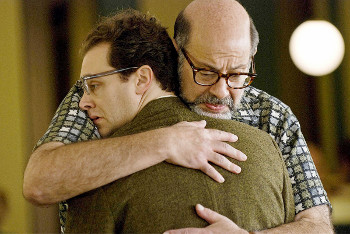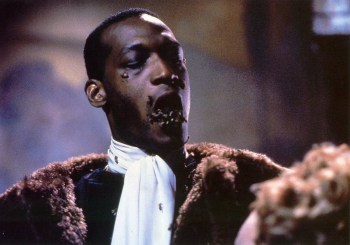Acts of Hashem
 I was surprised after watching (and then reading reviews of) the Coen brothers’ A Serious Man that there was such a fervent (if small) backlash against it. The movie – about a Job-like Jewish professor in a Minnesota suburb in the late 1960s – struck me as so right that I didn’t allow for opposite reactions. Yet there they are.
I was surprised after watching (and then reading reviews of) the Coen brothers’ A Serious Man that there was such a fervent (if small) backlash against it. The movie – about a Job-like Jewish professor in a Minnesota suburb in the late 1960s – struck me as so right that I didn’t allow for opposite reactions. Yet there they are.


 In the opening of 28 Weeks Later, Don (Robert Carlyle) faces a dilemma: He can leave his wife to die and run like hell on the off chance that he might outrun the “infected,” or he can stay with her and face a gruesome end. He runs like hell, and looks back to see his wife attacked. This is the movie writ small, laying the groundwork for more impossible choices.
In the opening of 28 Weeks Later, Don (Robert Carlyle) faces a dilemma: He can leave his wife to die and run like hell on the off chance that he might outrun the “infected,” or he can stay with her and face a gruesome end. He runs like hell, and looks back to see his wife attacked. This is the movie writ small, laying the groundwork for more impossible choices. How about a magic trick? I shall transform Christopher Nolan’s 144-minute The Dark Knight into a significantly better movie by trimming eight minutes from it.
How about a magic trick? I shall transform Christopher Nolan’s 144-minute The Dark Knight into a significantly better movie by trimming eight minutes from it. Candyman is an A movie desperately trying to break out of its B-movie body, like a 12-year-old boy wanting to prove his manhood. It is a slasher film, but it pushes and tugs and stretches to become something more. That it succeeds at all is pretty amazing.
Candyman is an A movie desperately trying to break out of its B-movie body, like a 12-year-old boy wanting to prove his manhood. It is a slasher film, but it pushes and tugs and stretches to become something more. That it succeeds at all is pretty amazing.
